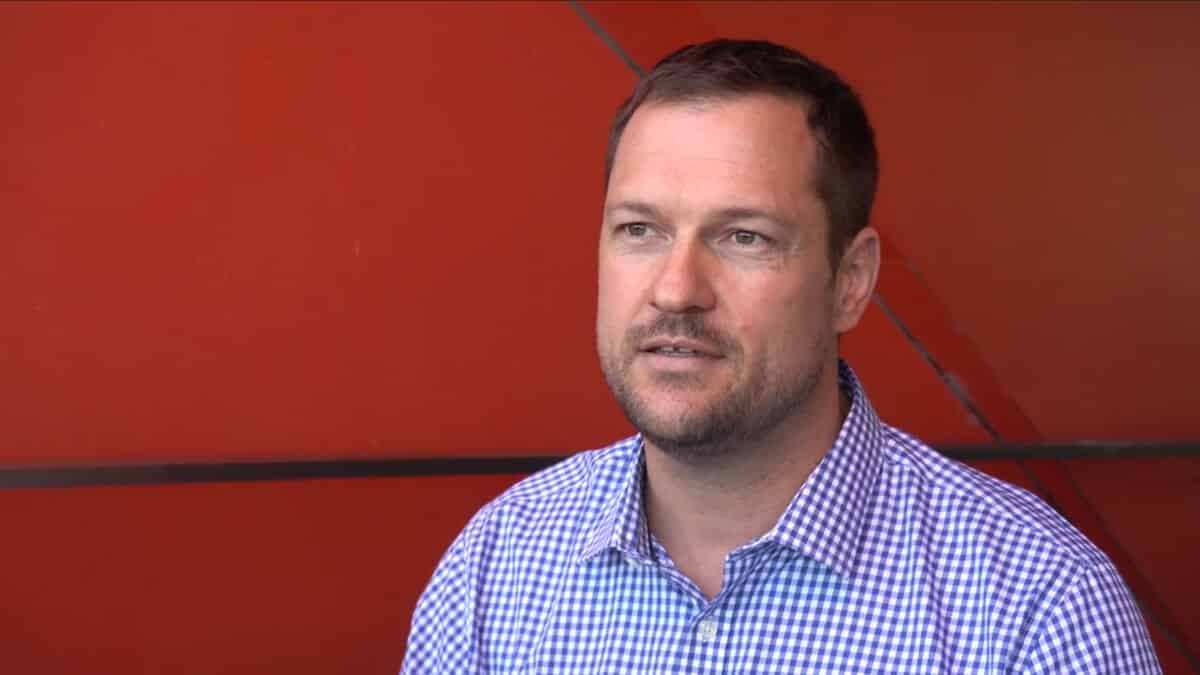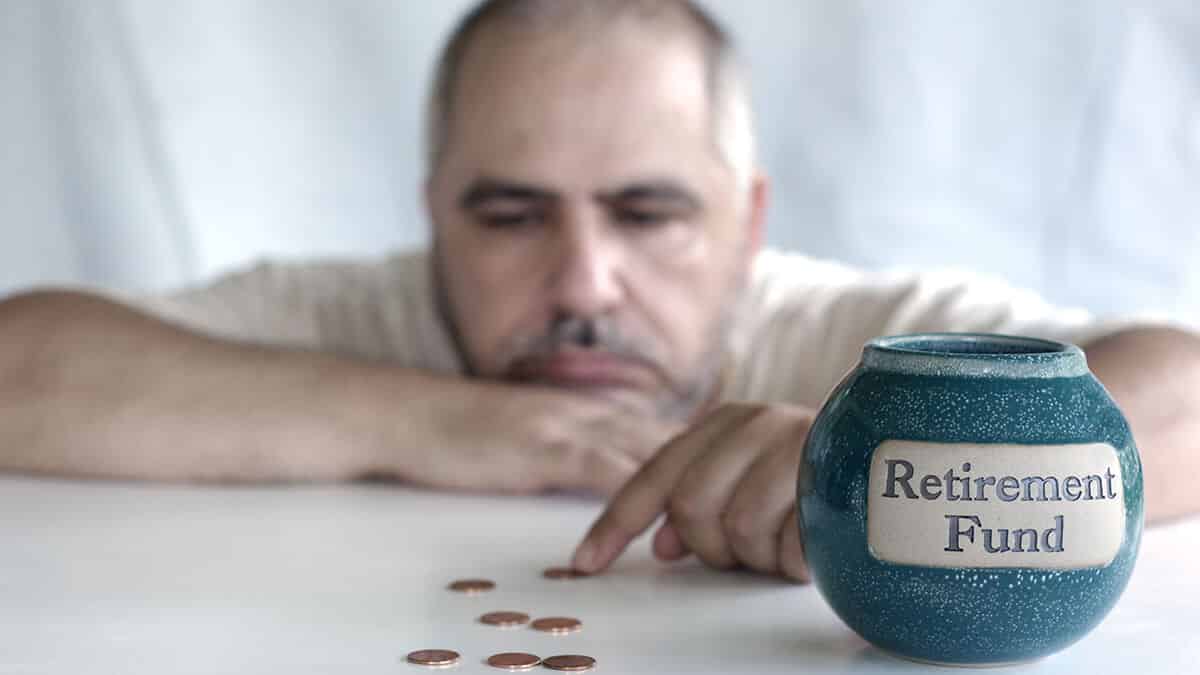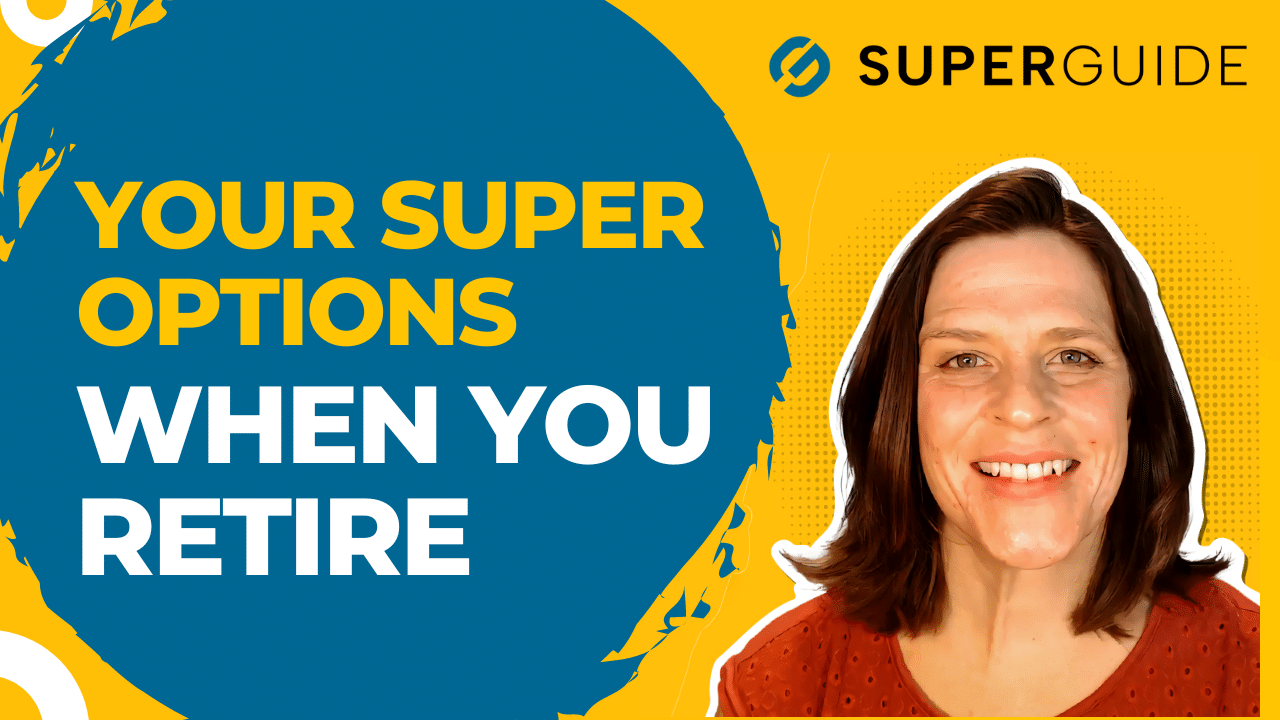Preparing for retirement can be daunting for many Australians. In this video members of the Profession of Independent Financial Advisers help you understand the important things to consider.
Transcript
What advice would you give to people looking to retire in the next few years?
Michael Radalj, Your Private Advisers
We do look after primarily retirees and so-called pre-retirees, as you say. And I do think that people are coming to us too late. There’s some often some really low lying fruit where we can save them money and get them on track quite easily if they just do certain things and adopt certain rules.
Sometimes we find even on the investing side where people can actually take less risk and make more money.
Naomi Horobin, Clover Financial Group
The earlier you start, the easier it is. And that’s just because little steps over a long period of time, you don’t really feel the impact of that. It’s like that compounding earnings on little chunks along the way. There’s not a lot for me to work with if you only come and see me two or three years before you pull the pin.
The other thing is the earlier you start, you’ve got time to really think through maybe what you want and maybe where you want to go. You don’t have to have the answer, you don’t have to define your goals 100% on day one.
Each year you can come back and revisit those and get more clarity about where you want to head, how you want your retirement to look, what you thought might’ve been important, which then doesn’t become important and things that you realize you really do want to be doing, and how you want to spend your time.
Peter Humble, Rise Wealth
Probably the biggest mistake is they leave it too long to actually get help to get advice. I used an analogy with some clients recently, that it was the equivalent of going to see the coach halfway through the last quarter of the football match.
My ability to have an impact on the scoreboard, my ability to help you understand what you need to do is diminished simply because we have practically run out of time.
Advice is not necessarily something that should start when you’re 55 or 60 years old. And you’re scared because you’re not sure that you have enough money to make the changes in the lifestyle you’d like to make.
It doesn’t leave a lot of time for planning what is probably the biggest transition that people go through – that transition from personal exertion income, working for a living, to relying on your investments for an income. And people, in my experience, don’t start to think about that early enough.
Dennis Maddern, Maddern Financial Advisers
Probably, I think to make sure you’ve got a good retirement is that this concept of a holistic approach. Now as part of our strategic plan, we sat down a number of years ago and actually developed the chartered accounting business as well.
So we’ve got issues like tax minimization, the appropriate tax structures as well as the savings components for a superannuation or a good retirement, the calculators to be able to determine how much you need and all of that and the regular reviews with the client.
But I think it’s about having your tax specialist in one room and your adviser in one room. It really doesn’t work if the tax specialist is in one suburb and the adviser’s in another suburb.
In theory, they should all work well together. They don’t. They often don’t like each other and they’ve got different strategic relationships, the loser is the client.
Susannah Kulincevic, Brocktons Independent Advisory
I find that clients, without pigeonholing them, tend to fit into two categories. There are ones that are ready to retire yesterday, and those are the clients that are ready to implement your advice almost immediately.
Then you’ve got ones who are reluctant to give up their work, because really they’re not sure what they’re going to do in retirement, what they’re going to do with all this time on their hands. But I think part of it is also giving up a bit of their identity. So it is very much an emotional decision to make as to when that’s going to happen.
My role as their adviser is to ensure that they are ready financially and that then helps them make their decisions emotionally. So if they want to retire, they can do so comfortably and with confidence. And that might help, that might go some way to helping them feel emotionally more stable about making that certain decision.
On the other side to that equation, and this is something that people, a lot of clients laugh when I say to them, “We want we want to ensure that your funds last until at least your mid 90s.” And people say, “Oh, well I’m not going to live for that long.” And we don’t have that much control over that aspect of the equation, but what we do have control over is how long the funds ought to last.
And when you think about it, you don’t really want to get to your mid to late 80s and then have this fear that you’ll start to run out of money.
Neil Salkow, Roskow Independent Advisory
Well, ideally we start planning a lot earlier than two years out from retirement. But for those that are two years out from retirement, the key thing’s really to know is what’s your number in terms of spending? What is it to live a comfortable lifestyle for you, what does that number look like and to understand the other things that you want to achieve other than just a lifestyle.
Whether that’s giving back to the community, to family and being able to help out. So really understanding the expenses that are coming in retirement, and then whether you’ve got enough to fund that.
Richard Barber, Liquidity Independent Advisers
People still don’t like to know what their expenditure is. Surprisingly, I remember a guy 25 years ago, I said, “You’ve got to get a book and you’ve got to write all your expenses.” And he still does it 25 years down the track. He said, “That was the best piece of advice I got.” Because they were going to go into retirement, they didn’t know how much money they required.
So it’s not how much money, you need to know what your lifestyle is that you’re going to have in retirement. If you’re going to maintain status quo, then you need to have a lot of money. If it’s $50,000, you need to have $1 million plus to generate that income stream.
And so a lot of people have retired in my practice, didn’t have a huge amount of money, but we’ve managed it right. And their lifestyle, they’ve been enjoying life all the way through in that time frame. So getting a handle on your expenditure is extremely important so that you know what it is now, so you can save those extra dollars or surplus dollars.
The power’s in surplus dollars, people don’t think it through. If you haven’t got no surplus dollars, you ain’t going nowhere. So understanding your cost base, then you create your surplus and then capture those surplus dollars, is very good thing to be doing all the way through your life. But more important, closer to retirement.
Mick Steffan, Independent Advisers WA
A lot of my prospects that come to me and we start working on, they do not know where they’re positioned. And the typical mistake is that they coming in too late.
Clearly from their conversations too, after my work that I’ve done with them, they say to me, “Oh boy, I wish I did this 10 years ago. Because one, I’m now relieved and know where I am. And secondly, I have somebody that I can trust and I work with for the longer term and I’ve got relief as to the clarity, as to my mess of financial affairs, where it is now, where I should be, and also what the expectations are from a comfortable level of retirement.”
Daniel McGregor, Wealth Train
I think probably the biggest mistake that most people make in the lead up to retirement, is simply not getting advice. Those who do will almost certainly see benefits. Not only in terms of how the financial system situation is set up, but just in terms of confidence.
One of the things I love about my pre-retiree clients is putting them in an informed position so they really know if they retire at this point in time, and they want this level of income, are they on track? And if they’re not, well then we can make the right adjustments. So they’re in a position that when they do retire, they can do so with confidence.
Joe Stephan, Stephan Independent Advisory
I think there is a human condition and an Australian condition to do it yourself. Financial planning, retirement planning is not like baking a cake. If you make a mistake with a cake, you throw it out, you start again. Retirement planning is not that way.
You really need people who are professional to look after your affairs. And I think in a sense my view would be, spend a lot of time doing your due diligence and your research on the adviser that you’re going to select. Make sure you’re looking for an adviser that actually specialises in your unique situation.
The old days of having an adviser that just looks after so many different permutations of a client’s life, I think is over, I think specialisation is coming in. And so look for an adviser that is tailored towards self-funded retirees or tailored towards business owners or tailored towards your young family. Do they work with a lot of that particular demographic?
Because there are differences in what the needs are, and if you’re working with a financial planner as a small business, it’s very hard for that financial planner to be doing everything for everybody.
Amir Salehi, Planning Wealth Independent Advisory
I would say get clear about their goals and their priorities. We’ve seen that people that they want to retire early or retire very soon, and at the same time they want a comfortable retirement, which they might not be achievable in that short period of time.
So I would say to them that the best way is to get somebody who is good at doing a good long-term life-long cashflow with the money that they have, and to make sure that the direction they are going is right. So basically what they have in their mind is actually a reality and it’s achievable.
Deborah Lin, Liquidity Independent Advisers
Plan, definitely. And plan for what’s going to get you out of bed in the morning, not just financially, but life goals. Particularly for men that have worked all their life. If they don’t have a hobby, they need to think about what they’re going to do, what’s going to get them out of the house every day and have something that gets them excited.
Keith Henderson, Malibu Wealth Advisory
It’s a very important period in your life. And the first thing you need to do is step back a little bit and take the time to look at the big picture. So people get very focused on technical type of questions. So what should I do with this super or this asset, or do I have enough to retire?
But the first thing you need to do is step back and go, “All right, what’s retirement going to look like? Where will I be, who do I need to provide for?” And take out some of the noise and the stress and the headlines, because people get very caught up in whatever headline of the day is attracting attention. So it might be positive, the world markets are going well, it might be negative, but that’s kind of irrelevant to your personal retirement.
So it’s about thinking what’s really important in terms of where I live, what my expenses are and then you just simplify it. So there’s a lot of smoke and mirrors when you look for advice around retirement planning and ultimately you can break it down to very, very simple principles. Which is keep things diversified, keep things low-cost, don’t spend more than you can afford and get good advice.
Philip Harvey, Construct Wealth
But also the other side of that is really making sure that people use super as much as much as possible because it’s set up for retirement planning. You can easily save a lot more through using super, and the tax benefits through super are so significant, that people are crazy not to take advantage of it.
Rick Horvat, Horvat Financial Advisers
I think what we’ve seen in the 14 years that we’ve been practicing, the biggest mistake that people have in terms of preparing for retirement, is actually preparing for retirement and not actually thinking about what the transition of them stopping working actually may be.
So it’s not necessarily to do with investments, it’s not necessarily to do with, traditional financial planning advice. It’s actually more to do with, “Well, I may stop my work, but what does life actually mean for me after that?” I need to spend more time with my family or I’m going to go traveling, or what does that actually look like? The planning for retirement for a lot of people seems to be that I’m just going to stop work.
Peter Humble, Rise Wealth
I think to be aspirational, I think lots of clients sort of hold back a little bit. I think a lot of people don’t seem to have clarity around being able to articulate their goals. And I think people, as Australians, we don’t seem to carry them around in our back pocket.
And so sometimes I’ll have to prod and tease out the information, but I think broadly people just want to know that everything’s going to be okay. That I’ll have sufficient money to maintain their existing or an aspirational lifestyle, and yet things over and above that are cream on the cake. And look, it’s fantastic to have those things, but what does that look like?
So I think most fundamentally, my advice to pre-retiree clients is understand what you want your life to look like. Understand the things that are on your bucket list, because we all have things that we want to do when we don’t have to work for a living anymore. What does that look like? And we’ll help you work out what that might cost.
Phil Thompson, Rise Financial
My opinion would be getting advice, the right time to get advice is when it is important to you. But I would encourage people to get advice sooner rather than later.
A typical mistake we may see is someone who puts off getting advice because they just think they should be further along, or they’re a little bit embarrassed about some of their choices or where they’re at right now, and they can put off getting advice for years.
My best suggestion for those people that are just draw a line in the sand, let the past be the past, let’s run your own race, let’s make sure you make the most of what you’re doing now.
Michael Radalj, Your Private Advisers
Well on the age thing, are certainly younger for insurances. Because you get in before the wheels start falling off and becomes expensive and get that all set up quicker and efficiently. And quite frankly through an independent adviser – it’s much cheaper through us as well, as commissions stripped out.
But I think a lot of people come to us and I think it’s wise to as soon as they start having some excess cashflow, they wonder what they’re doing. Should we address bigger issues, should we pay off the home loan or whatever it may be, or should we put money into super?
Those sorts of questions should be addressed sooner rather than later, as I’m sure by the time they’ve come to us, they’ve had many conversations at home that have probably gone nowhere or they need help to get across the line. So come and see us sooner rather than later to avoid all those conversations and have it clear from a professional as to what they should do. Unbiased advice in that regard, yeah.
What advice would you give to people looking to retire in the next few years?
Michael Radalj, Your Private Advisers
We do look after primarily retirees and so-called pre-retirees, as you say. And I do think that people are coming to us too late. There’s some often some really low lying fruit where we can save them money and get them on track quite easily if they just do certain things and adopt certain rules.
Sometimes we find even on the investing side where people can actually take less risk and make more money.
Naomi Horobin, Clover Financial Group
The earlier you start, the easier it is. And that’s just because little steps over a long period of time, you don’t really feel the impact of that. It’s like that compounding earnings on little chunks along the way. There’s not a lot for me to work with if you only come and see me two or three years before you pull the pin.
The other thing is the earlier you start, you’ve got time to really think through maybe what you want and maybe where you want to go. You don’t have to have the answer, you don’t have to define your goals 100% on day one.
Each year you can come back and revisit those and get more clarity about where you want to head, how you want your retirement to look, what you thought might’ve been important, which then doesn’t become important and things that you realize you really do want to be doing, and how you want to spend your time.
Peter Humble, Rise Wealth
Probably the biggest mistake is they leave it too long to actually get help to get advice. I used an analogy with some clients recently, that it was the equivalent of going to see the coach halfway through the last quarter of the football match.
My ability to have an impact on the scoreboard, my ability to help you understand what you need to do is diminished simply because we have practically run out of time.
Advice is not necessarily something that should start when you’re 55 or 60 years old. And you’re scared because you’re not sure that you have enough money to make the changes in the lifestyle you’d like to make.
It doesn’t leave a lot of time for planning what is probably the biggest transition that people go through – that transition from personal exertion income, working for a living, to relying on your investments for an income. And people, in my experience, don’t start to think about that early enough.
Dennis Maddern, Maddern Financial Advisers
Probably, I think to make sure you’ve got a good retirement is that this concept of a holistic approach. Now as part of our strategic plan, we sat down a number of years ago and actually developed the chartered accounting business as well.
So we’ve got issues like tax minimization, the appropriate tax structures as well as the savings components for a superannuation or a good retirement, the calculators to be able to determine how much you need and all of that and the regular reviews with the client.
But I think it’s about having your tax specialist in one room and your adviser in one room. It really doesn’t work if the tax specialist is in one suburb and the adviser’s in another suburb.
In theory, they should all work well together. They don’t. They often don’t like each other and they’ve got different strategic relationships, the loser is the client.
Susannah Kulincevic, Brocktons Independent Advisory
I find that clients, without pigeonholing them, tend to fit into two categories. There are ones that are ready to retire yesterday, and those are the clients that are ready to implement your advice almost immediately.
Then you’ve got ones who are reluctant to give up their work, because really they’re not sure what they’re going to do in retirement, what they’re going to do with all this time on their hands. But I think part of it is also giving up a bit of their identity. So it is very much an emotional decision to make as to when that’s going to happen.
My role as their adviser is to ensure that they are ready financially and that then helps them make their decisions emotionally. So if they want to retire, they can do so comfortably and with confidence. And that might help, that might go some way to helping them feel emotionally more stable about making that certain decision.
On the other side to that equation, and this is something that people, a lot of clients laugh when I say to them, “We want we want to ensure that your funds last until at least your mid 90s.” And people say, “Oh, well I’m not going to live for that long.” And we don’t have that much control over that aspect of the equation, but what we do have control over is how long the funds ought to last.
And when you think about it, you don’t really want to get to your mid to late 80s and then have this fear that you’ll start to run out of money.
Neil Salkow, Roskow Independent Advisory
Well, ideally we start planning a lot earlier than two years out from retirement. But for those that are two years out from retirement, the key thing’s really to know is what’s your number in terms of spending? What is it to live a comfortable lifestyle for you, what does that number look like and to understand the other things that you want to achieve other than just a lifestyle.
Whether that’s giving back to the community, to family and being able to help out. So really understanding the expenses that are coming in retirement, and then whether you’ve got enough to fund that.
Richard Barber, Liquidity Independent Advisers
People still don’t like to know what their expenditure is. Surprisingly, I remember a guy 25 years ago, I said, “You’ve got to get a book and you’ve got to write all your expenses.” And he still does it 25 years down the track. He said, “That was the best piece of advice I got.” Because they were going to go into retirement, they didn’t know how much money they required.
So it’s not how much money, you need to know what your lifestyle is that you’re going to have in retirement. If you’re going to maintain status quo, then you need to have a lot of money. If it’s $50,000, you need to have $1 million plus to generate that income stream.
And so a lot of people have retired in my practice, didn’t have a huge amount of money, but we’ve managed it right. And their lifestyle, they’ve been enjoying life all the way through in that time frame. So getting a handle on your expenditure is extremely important so that you know what it is now, so you can save those extra dollars or surplus dollars.
The power’s in surplus dollars, people don’t think it through. If you haven’t got no surplus dollars, you ain’t going nowhere. So understanding your cost base, then you create your surplus and then capture those surplus dollars, is very good thing to be doing all the way through your life. But more important, closer to retirement.
Mick Steffan, Independent Advisers WA
A lot of my prospects that come to me and we start working on, they do not know where they’re positioned. And the typical mistake is that they coming in too late.
Clearly from their conversations too, after my work that I’ve done with them, they say to me, “Oh boy, I wish I did this 10 years ago. Because one, I’m now relieved and know where I am. And secondly, I have somebody that I can trust and I work with for the longer term and I’ve got relief as to the clarity, as to my mess of financial affairs, where it is now, where I should be, and also what the expectations are from a comfortable level of retirement.”
Daniel McGregor, Wealth Train
I think probably the biggest mistake that most people make in the lead up to retirement, is simply not getting advice. Those who do will almost certainly see benefits. Not only in terms of how the financial system situation is set up, but just in terms of confidence.
One of the things I love about my pre-retiree clients is putting them in an informed position so they really know if they retire at this point in time, and they want this level of income, are they on track? And if they’re not, well then we can make the right adjustments. So they’re in a position that when they do retire, they can do so with confidence.
Joe Stephan, Stephan Independent Advisory
I think there is a human condition and an Australian condition to do it yourself. Financial planning, retirement planning is not like baking a cake. If you make a mistake with a cake, you throw it out, you start again. Retirement planning is not that way.
You really need people who are professional to look after your affairs. And I think in a sense my view would be, spend a lot of time doing your due diligence and your research on the adviser that you’re going to select. Make sure you’re looking for an adviser that actually specialises in your unique situation.
The old days of having an adviser that just looks after so many different permutations of a client’s life, I think is over, I think specialisation is coming in. And so look for an adviser that is tailored towards self-funded retirees or tailored towards business owners or tailored towards your young family. Do they work with a lot of that particular demographic?
Because there are differences in what the needs are, and if you’re working with a financial planner as a small business, it’s very hard for that financial planner to be doing everything for everybody.
Amir Salehi, Planning Wealth Independent Advisory
I would say get clear about their goals and their priorities. We’ve seen that people that they want to retire early or retire very soon, and at the same time they want a comfortable retirement, which they might not be achievable in that short period of time.
So I would say to them that the best way is to get somebody who is good at doing a good long-term life-long cashflow with the money that they have, and to make sure that the direction they are going is right. So basically what they have in their mind is actually a reality and it’s achievable.
Deborah Lin, Liquidity Independent Advisers
Plan, definitely. And plan for what’s going to get you out of bed in the morning, not just financially, but life goals. Particularly for men that have worked all their life. If they don’t have a hobby, they need to think about what they’re going to do, what’s going to get them out of the house every day and have something that gets them excited.
Keith Henderson, Malibu Wealth Advisory
It’s a very important period in your life. And the first thing you need to do is step back a little bit and take the time to look at the big picture. So people get very focused on technical type of questions. So what should I do with this super or this asset, or do I have enough to retire?
But the first thing you need to do is step back and go, “All right, what’s retirement going to look like? Where will I be, who do I need to provide for?” And take out some of the noise and the stress and the headlines, because people get very caught up in whatever headline of the day is attracting attention. So it might be positive, the world markets are going well, it might be negative, but that’s kind of irrelevant to your personal retirement.
So it’s about thinking what’s really important in terms of where I live, what my expenses are and then you just simplify it. So there’s a lot of smoke and mirrors when you look for advice around retirement planning and ultimately you can break it down to very, very simple principles. Which is keep things diversified, keep things low-cost, don’t spend more than you can afford and get good advice.
Philip Harvey, Construct Wealth
But also the other side of that is really making sure that people use super as much as much as possible because it’s set up for retirement planning. You can easily save a lot more through using super, and the tax benefits through super are so significant, that people are crazy not to take advantage of it.
Rick Horvat, Horvat Financial Advisers
I think what we’ve seen in the 14 years that we’ve been practicing, the biggest mistake that people have in terms of preparing for retirement, is actually preparing for retirement and not actually thinking about what the transition of them stopping working actually may be.
So it’s not necessarily to do with investments, it’s not necessarily to do with, traditional financial planning advice. It’s actually more to do with, “Well, I may stop my work, but what does life actually mean for me after that?” I need to spend more time with my family or I’m going to go traveling, or what does that actually look like? The planning for retirement for a lot of people seems to be that I’m just going to stop work.
Peter Humble, Rise Wealth
I think to be aspirational, I think lots of clients sort of hold back a little bit. I think a lot of people don’t seem to have clarity around being able to articulate their goals. And I think people, as Australians, we don’t seem to carry them around in our back pocket.
And so sometimes I’ll have to prod and tease out the information, but I think broadly people just want to know that everything’s going to be okay. That I’ll have sufficient money to maintain their existing or an aspirational lifestyle, and yet things over and above that are cream on the cake. And look, it’s fantastic to have those things, but what does that look like?
So I think most fundamentally, my advice to pre-retiree clients is understand what you want your life to look like. Understand the things that are on your bucket list, because we all have things that we want to do when we don’t have to work for a living anymore. What does that look like? And we’ll help you work out what that might cost.
Phil Thompson, Rise Financial
My opinion would be getting advice, the right time to get advice is when it is important to you. But I would encourage people to get advice sooner rather than later.
A typical mistake we may see is someone who puts off getting advice because they just think they should be further along, or they’re a little bit embarrassed about some of their choices or where they’re at right now, and they can put off getting advice for years.
My best suggestion for those people that are just draw a line in the sand, let the past be the past, let’s run your own race, let’s make sure you make the most of what you’re doing now.
Michael Radalj, Your Private Advisers
Well on the age thing, are certainly younger for insurances. Because you get in before the wheels start falling off and becomes expensive and get that all set up quicker and efficiently. And quite frankly through an independent adviser – it’s much cheaper through us as well, as commissions stripped out.
But I think a lot of people come to us and I think it’s wise to as soon as they start having some excess cashflow, they wonder what they’re doing. Should we address bigger issues, should we pay off the home loan or whatever it may be, or should we put money into super?
Those sorts of questions should be addressed sooner rather than later, as I’m sure by the time they’ve come to us, they’ve had many conversations at home that have probably gone nowhere or they need help to get across the line. So come and see us sooner rather than later to avoid all those conversations and have it clear from a professional as to what they should do. Unbiased advice in that regard, yeah.









Leave a comment
You must be a SuperGuide member and logged in to add a comment or question.